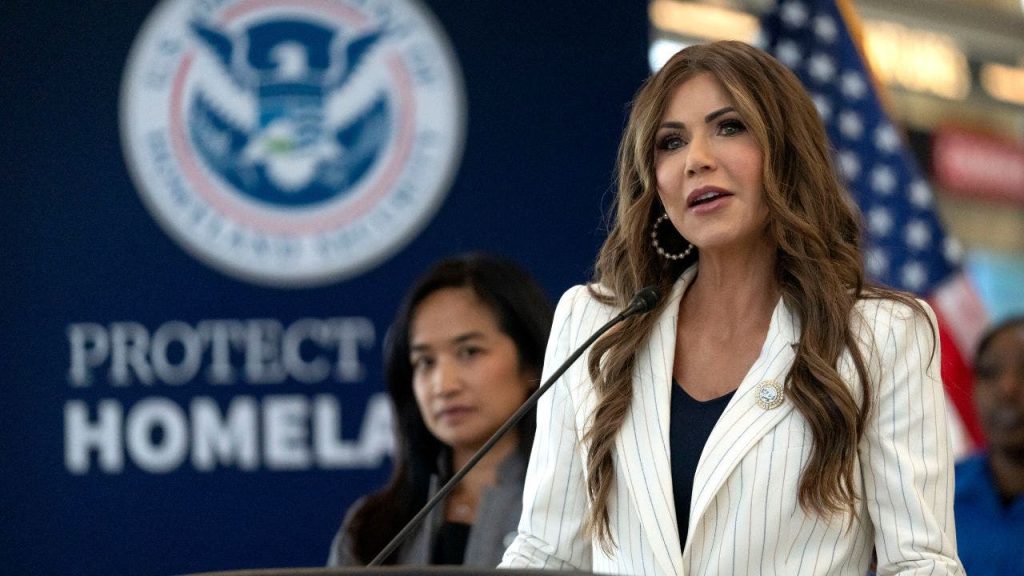DHS Introduces Immigration Parole Fee to Combat System Abuse
In a significant policy shift announced Thursday, the Department of Homeland Security is implementing a new $1,000 fee for migrants paroled into the United States. This measure aims to “institute accountability and prevent rampant fraud of the parole system,” marking another step in the Trump administration’s ongoing efforts to reshape immigration policies.
The DHS describes this fee as a way to “strengthen oversight of the immigration parole system and deter its misuse.” According to DHS Assistant Secretary Tricia McLaughlin, this action addresses what the current administration views as abuse by the previous administration, which they claim “turned parole into a de facto amnesty program, thereby allowing millions of unvetted illegal aliens into the U.S., no questions asked, to the detriment of all Americans.” McLaughlin emphasized that the fee ensures that “foreign nationals, who wish to stay here, have skin in the game and do not exploit the system,” describing it as “another tool to stop the degradation of our immigration system and restore law and order to our country.”
The mechanics of this new fee are straightforward but impactful: it becomes due once the parole grant becomes effective, not at the earlier stages of application or travel document receipt. The fee structure includes a provision for annual adjustments based on the Consumer Price Index, with DHS committing to publishing annual notices in the Federal Register announcing any changes. The collection responsibility will be shared across three agencies: Customs and Border Protection, Immigration and Customs Enforcement, and Citizenship and Immigration Services, creating a coordinated approach to enforcement.
This parole fee represents just one element of a broader immigration strategy under the Trump administration, which has prioritized stricter border enforcement and more restrictive immigration policies. The administration has made no secret of its intention to reduce both illegal immigration and certain pathways for legal immigration. For instance, the president recently attempted to dramatically increase H-1B visa application fees to $100,000, a move explicitly designed to prioritize American workers in the job market. That particular initiative has faced legal challenges, including a lawsuit from the U.S. Chamber of Commerce, highlighting the contentious nature of these policy shifts.
The implementation of this fee occurs against a backdrop of the administration’s stated commitment to mass deportation of unauthorized immigrants. Critics argue these policies collectively represent an overly harsh approach to immigration that fails to consider humanitarian concerns and the economic contributions of immigrants. Supporters, meanwhile, view these measures as necessary steps to restore what they consider proper order to an immigration system they believe has been too permissive in recent years.
What remains to be seen is how this fee will impact the actual use of immigration parole, which has traditionally served as a mechanism to allow foreign nationals to temporarily enter or remain in the United States for humanitarian reasons or significant public benefit. The substantial financial burden may significantly reduce applications, particularly among lower-income migrants who have legitimate reasons for seeking parole. As with many immigration policy changes, the true impact will likely become apparent only after implementation, when patterns of application, approval, and enforcement begin to emerge in response to these new financial requirements.


